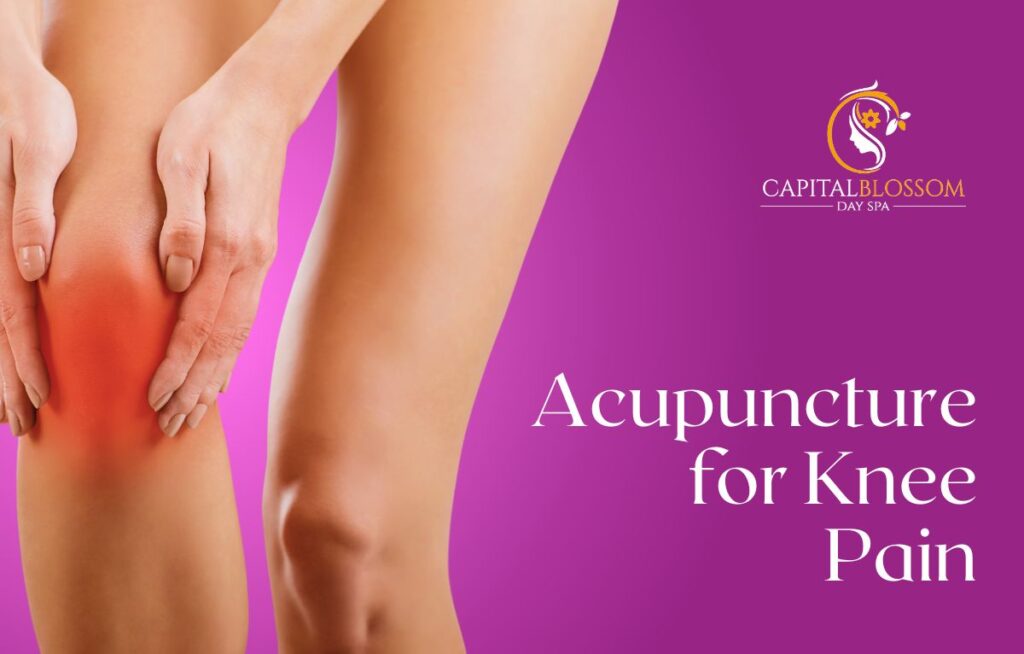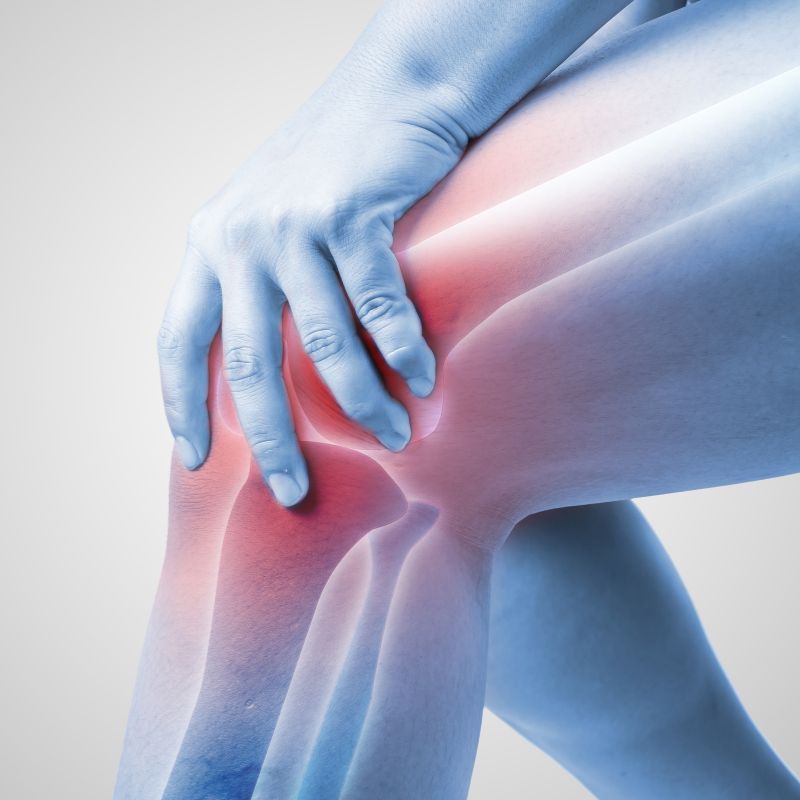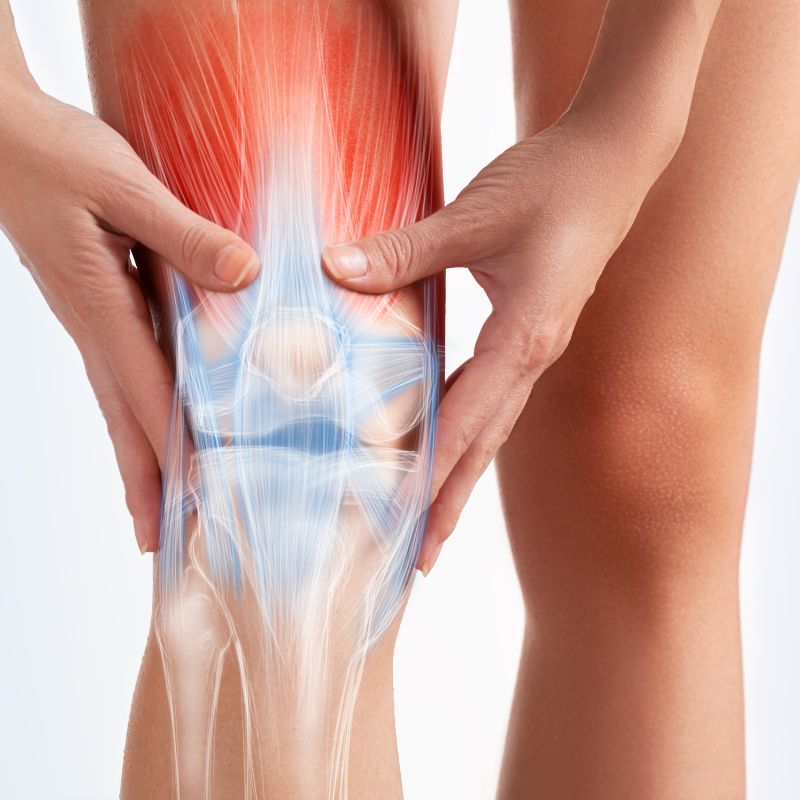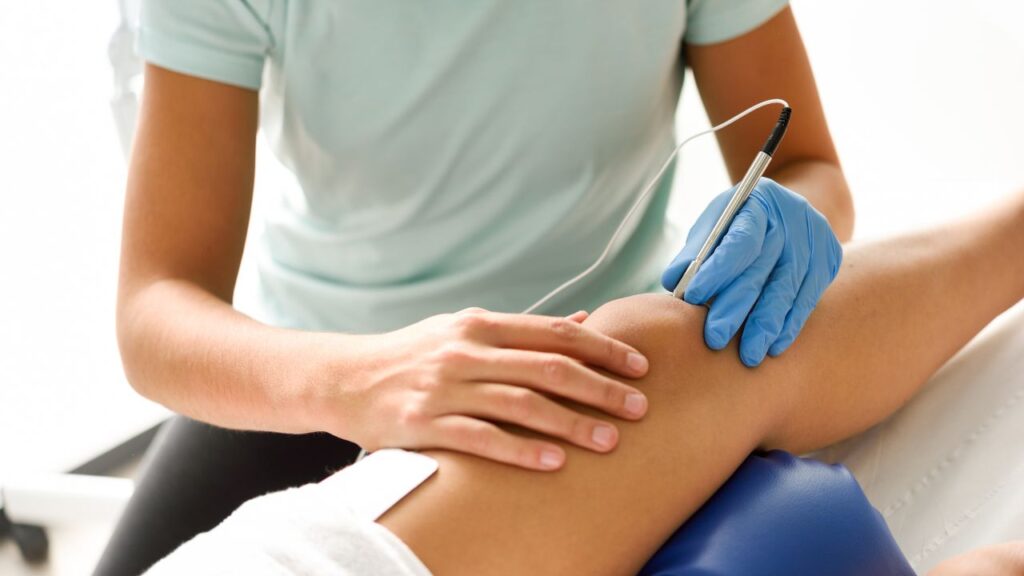
Why Acupuncture for Knee Pain Might Be Your Solution?
Knee pain can be a persistent and debilitating issue for many individuals, affecting their daily lives and overall well-being.
While there are various treatments available, one alternative that has gained popularity for its potential effectiveness is acupuncture.
In this blog, we will learn the reasons why acupuncture for knee pain could be a viable solution for those seeking relief.

Comprehending Acupuncture
Acupuncture is an ancient Chinese practice that involves inserting thin needles into specific points on the body. The underlying principle is to balance the flow of energy, or Qi, within the body.
In the context of knee pain, acupuncture is believed to address not only the symptoms but also the root cause of the discomfort.
Beyond Surface Relief
Traditional Chinese Medicine views the body as a holistic system, interconnected and influenced by various factors. Acupuncture takes a holistic approach by targeting specific acupuncture points related to knee pain, aiming to restore balance to the entire body.
This comprehensive method often leads to more sustained relief compared to merely addressing surface symptoms.
Pain Management Without Medication
Many individuals seek alternatives to pain medications due to concerns about potential side effects and dependency. Acupuncture offers a drug-free option for managing knee pain.
By stimulating specific points, acupuncture prompts the body to release natural pain-relieving chemicals, such as endorphins, promoting a more organic approach to pain management.
Addressing Inflammation
Inflammation is a common contributor to knee pain, often associated with conditions like osteoarthritis. Acupuncture may help reduce inflammation by modulating the immune response and promoting better circulation.
By addressing the root cause of inflammation, acupuncture aims to provide relief and improve the overall function of the knee joint.

Individualized Treatment Plans
One of the strengths of acupuncture lies in its adaptability to individual needs. Acupuncturists tailor treatment plans based on a thorough assessment of the patient’s condition, considering factors such as lifestyle, overall health, and the specific nature of the knee pain.
This personalized approach enhances the effectiveness of the treatment, recognizing that each person’s experience with knee pain is unique.
Enhanced Blood Flow and Oxygenation
Proper blood flow is crucial for the health and healing of any part of the body, including the knees. Acupuncture is believed to enhance blood circulation, promoting better oxygenation and nutrient delivery to the affected area.
Improved blood flow may contribute to reduced stiffness, increased mobility, and a quicker recovery from knee-related issues.
Relaxation and Stress Reduction
Stress can exacerbate pain and contribute to muscle tension, creating a cycle of discomfort. Acupuncture sessions are known for inducing relaxation by prompting the release of neurotransmitters that counteract stress.
A more relaxed state may positively impact the perception of pain, offering a holistic approach to managing knee discomfort.

Complementary to Conventional Treatments
Acupuncture is not intended to replace conventional medical treatments but can complement them. Individuals undergoing other treatments for knee pain, such as physical therapy or medication, may find acupuncture as a beneficial addition to their overall care plan.
The combination of approaches can address various aspects of knee pain, providing a more comprehensive solution.
Minimal Side Effects
Unlike some medical interventions, acupuncture is associated with minimal side effects. The most common response is a sense of relaxation during and after the session.
The low risk of adverse effects makes acupuncture an attractive option for individuals looking for alternative or supplementary treatments for knee pain.
Long-Term Relief and Maintenance
Acupuncture for knee pain is not just about immediate relief; it also focuses on fostering long-term well-being. Regular acupuncture sessions may not only help manage current discomfort but also contribute to preventing future issues.
By maintaining balance in the body’s energy flow, individuals may experience ongoing relief and improved knee function.
Empowering Patients in Their Healing Journey
Choosing acupuncture for knee pain is a decision that empowers individuals to actively participate in their healing journey. The collaborative approach between the acupuncturist and the patient fosters a sense of agency and awareness.
Patients often report feeling more connected to their bodies and better equipped to manage their knee pain.
How Acupuncture Works for Knee Pain
Knee pain is categorized as “Bi Syndrome” in Traditional Chinese Medicine (TCM). This results from the invasion of external pathogenic wind, cold, dampness, and heat attacking the knee joints.
The condition is characterized by the blockage of qi (life force) and blood flow in channels called meridians and is generally classified into three based on Healing Points Acupuncture.
These are:
- Yang Deficiency Cold Stagnation – may manifest as pain, stiffness, and reduced knee function; exacerbated by cold and relieved by warmth.
- Kidney Essence Deficiency – characterized by limited knee movements, dizziness, and tinnitus.
- Blood Stagnation – primary signs include fixed pain, limited motion range, a dark face, and purplish lips.
Traditional Chinese Medicine holds that there are as many as 2,000 acupuncture points on the body that are connected via different pathways and meridians. Your acupuncturist will choose various points based on your symptoms and constitution.
By doing so, acupuncture can facilitate the free flow of qi (energy), alleviate pain and swelling, and give the knee and the tissues around it their natural range of motion and functionality.
Strategically positioned needles help reduce swelling, promote blood flow, and loosen tight muscles. The sensations also send signals from the spinal cord to the brain to release endorphins and enkephalins – the body’s natural painkillers. Cortisol (a hormone that helps regulate inflammation) is also produced.
Indeed, acupuncture can enhance function and quality of life, making it worthwhile to try.
Patients who have utilized acupuncture, particularly for knee osteoarthritis, have reported a considerable improvement in pain and function following treatment.
Transformative Power of Acupuncture
The transformative potential of acupuncture extends beyond mere relief; it promises an enhancement of function and an elevation in the quality of life.
Testimonials echo the success stories of patients, particularly those battling knee osteoarthritis, who have witnessed substantial improvements in pain and functionality post-treatment.
Schedule a consultation with the seasoned acupuncturists at Capital Blossom today, and let us craft a tailored plan designed exclusively for your unique needs.
Embrace the timeless wisdom of acupuncture and rediscover the sheer joy of living free from pain.